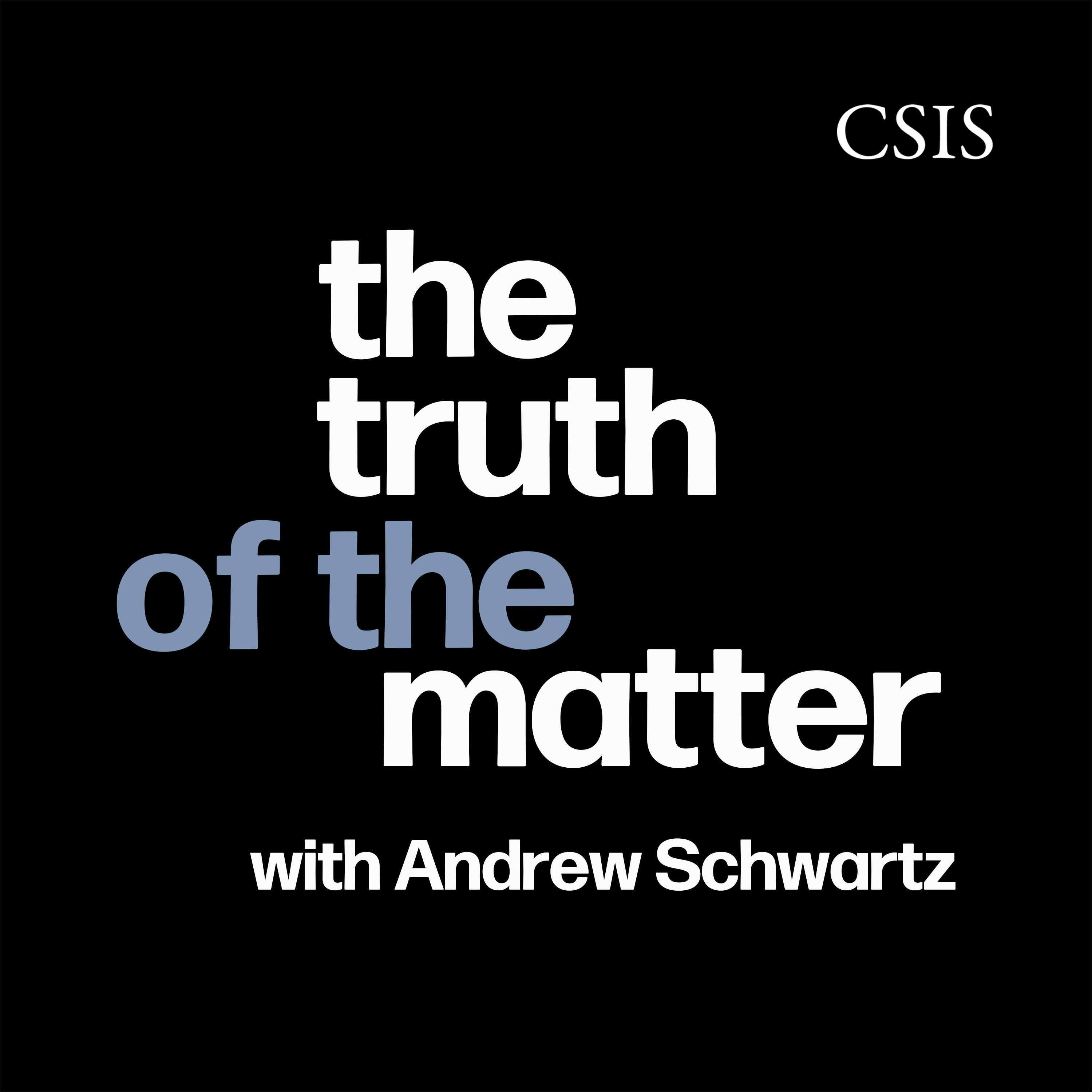

The Truth of the Matter
CSIS | Center for Strategic and International Studies
A weekly analysis of the complex policy issues driving the news.
Episodes
Mentioned books

4 snips
Feb 11, 2025 • 11min
Tariffs and More Tariffs
Philip Luck, Director of the CSIS Economics Program and Scholl Chair in International Business, dives deep into the implications of the U.S. tariffs on steel and aluminum. He uncovers how these tariffs may reshape trade relationships with Canada and Mexico. The discussion reveals the hidden costs of tariffs, including increased manufacturing expenses and potential job losses. Luck also highlights the broader national security concerns related to domestic steel production and the complexities of relying on international sources for critical materials.

13 snips
Feb 6, 2025 • 25min
What's Happening to USAID?
Noam Unger, the Director of the CSIS Sustainable Development and Resilience Initiative, delves into the precarious state of USAID and its implications for U.S. foreign policy. He discusses a recent executive order that halted foreign assistance, causing confusion within the agency. Unger highlights how the agency is crucial for global health and humanitarian efforts, emphasizing potential geopolitical risks posed by its operational decline. The conversation also covers the interplay of USAID with emerging powers like China and Russia, alongside evolving foreign assistance strategies.

Feb 5, 2025 • 24min
Tariff Leverage
Philip Luck, the economics program director at CSIS and a tariffs and trade expert, dives into the ramifications of the Trump administration's tariffs on Canada, Mexico, and China. He discusses the motivations behind these measures and their impact on trade relations. Luck sheds light on the complexities of diplomatic negotiations amidst growing tensions and how these tariffs have historically affected supply chains. He highlights the economic risks involved, particularly for farmers, and the changing landscape of international trade policies.

6 snips
Jan 30, 2025 • 19min
Don’t Brush Off Bird Flu
Michaela Simoneau, an associate fellow for global health security at CSIS, sheds light on the recent bird flu outbreak's impact on the poultry industry and U.S. egg prices. She discusses the crucial red flags researchers monitor to assess pandemic risks. The conversation emphasizes the necessity of government investment in vaccine development and public health communication. Michaela highlights the challenges in building public trust and misinformation management during health crises, underscoring the importance of coordinated efforts to mitigate future infectious diseases.

Jan 29, 2025 • 30min
DeepSeek Deep Dive
Gregory C. Allen, Director of the Wadwani AI Center at CSIS and co-host of the AI Policy Podcast, dives into the competitive landscape of artificial intelligence. He discusses the origins of DeepSeek, a rising Chinese AI company, and its new DeepSeek R1 model, which is shaking up U.S.-China relations. The conversation highlights its impact on stock fluctuations, particularly with NVIDIA, and the ethical concerns surrounding intellectual property theft. Allen emphasizes the importance of leadership in the ongoing AI race and how major U.S. tech firms adapt to this evolving landscape.

10 snips
Jan 27, 2025 • 21min
Africa Policy in the Second Trump Administration
Catherine Nzuki, an associate fellow in the CSIS Africa Program, delves into U.S. policy impacts on Africa amid potential Trump returns. She discusses how African nations can strategically leverage great power competition between the U.S. and China. Catherine highlights Africa's demographic shifts, projecting one in four people will be African by 2050, and tackles the continent's debt crisis affecting essential services. She also reflects on the cultural resurgence driven by internet access, showcasing African voices in the global arena.

6 snips
Jan 22, 2025 • 20min
A Rising Barometer for 2025
Paul B. Stares, an expert in conflict prevention and foreign policy, provides insights into the urgent findings of the 2025 Preventive Priorities Survey. He discusses rising geopolitical threats, including tensions in Gaza, Ukraine, and the South China Sea. Stares highlights overlooked global conflicts and humanitarian crises in Sudan and Ethiopia, urging for increased intervention. He also examines the complexities of U.S. foreign policy and its challenges in navigating peace amid seemingly contradictory actions.

10 snips
Jan 14, 2025 • 23min
Executive Order on AI and Energy Infrastructure - Emergency Podcast 2.0
In this insightful discussion, Gregory C. Allen, Director of the Wadwani AI Center at CSIS, and Joseph Majkut, Director of the Energy Security and Climate Change Program at CSIS, delve into the Biden administration's Executive Order on AI infrastructure. They unpack motivations behind enhancing U.S. AI leadership and the critical need for a robust energy grid. The conversation touches on the significant investments likened to a modern Manhattan project and anticipates how future administrations might shift energy policies, balancing fossil fuels with renewable resources.

8 snips
Jan 13, 2025 • 29min
AI Diffusion Framework - Emergency Podcast
Gregory C. Allen, Director of the Wadwani AI Center and expert on AI policy, delves into the Biden administration's new AI Diffusion Framework. He discusses its strategic implications amid rising global competition, especially from China and Russia. The conversation highlights breakthroughs in AI technology, including OpenAI's O3 model, and addresses changes in U.S. export controls affecting semiconductor firms. Allen also anticipates potential shifts in policy with the incoming Trump administration and the challenges faced in semiconductor supply chains.

Jan 10, 2025 • 24min
Trudeau’s Dramatic Resignation
Vincent Rigby, a former national security and intelligence advisor to Justin Trudeau, shares insights into the surprising resignation of the Canadian Prime Minister. He discusses the political pressures and public discontent that precipitated this landmark decision. Rigby explores the ensuing political turmoil, including the impact of a deputy prime minister’s departure and the rise of populist leader Pierre Poliev. He also highlights the potential implications for U.S.-Canada relations amidst this transition.


